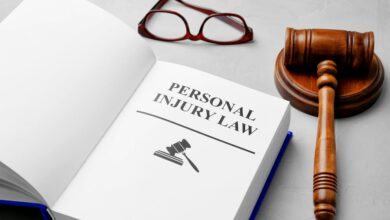What to Do When Suffering an Injury at Work

Although some professions and occupations are more dangerous than others, anyone can suffer an injury at work. When this happens to you, you may find yourself unsure as to what to do or how to proceed, or whether your best course of action would be to talk to a personal injury lawyer. Let’s find out what you should do in these circumstances.
Read More: How Personal Injury Lawyers Can Help With Wrongful Death Cases
Start By Notifying a Supervisor
You must notify your immediate supervisor as soon as possible of the incident. Even if you believe your injuries are minor, you should let them know. Some symptoms may delay in appearing, making themselves known hours or days after the accident. Among them:
- Headaches
- Nausea
- Dizziness
- Abdominal pain
- Pain in the shoulder or neck
- Vision issues
- Ringing in the ears
Any of the above symptoms may signal a more serious condition. You should get a complete medical checkup to rule out any issues that may lead to life-long pain or discomfort if left untreated.
Once the injury has been reported, take note of anything that may have contributed to the accident. There might have been unsafe work conditions, a dangerous obstacle, or insufficient training that led to your accident.
File a Worker’s Compensation Claim
In addition to reporting your injury to your employer, you should file a claim with worker’s compensation. Your supervisor might have provided the form to you or you may have to procure one on your own. Complete the section marked “Employee” and provide details about the accident and any treatment you have received. Date and sign it. Keep a copy for your records. Hand the completed form to your employer.
When your employer receives it, they will complete the section marked “Employer” and send it on to the insurance company. You should receive a copy of the form at this time. The insurance company will keep you informed as to your claim’s status.
Read More: How do I know if I have a personal injury case?
Worker’s Compensation or Personal injury Claim
Depending on the factors of your case, you may file a worker’s compensation or a personal injury claim. In some cases, you may be able to file both.
Worker’s compensation is a no-fault insurance program, which means that there is no need for you to prove that either your employer or a co-worker contributed to your work injury in any way.
In other cases, you may be entitled to file a lawsuit against a third party if the accident occurred while you were performing work-related duties and are injured by someone else. In these cases, you can file a personal injury lawsuit. In these cases, you do have to show that the third party was responsible for your accident and injuries because they were negligent or acted unreasonably under the circumstances.
Although worker’s compensation tends to get paid faster, personal injury claims can result in more types of compensation.












3 Comments